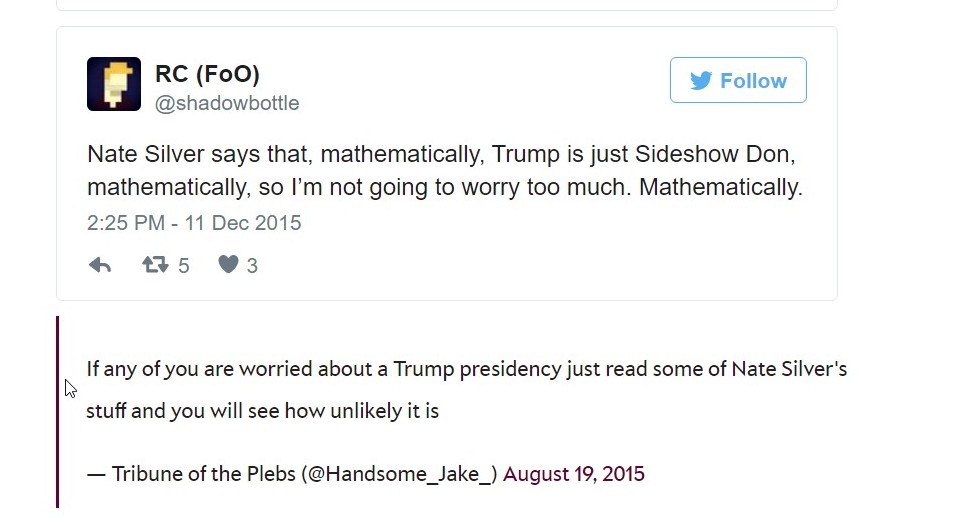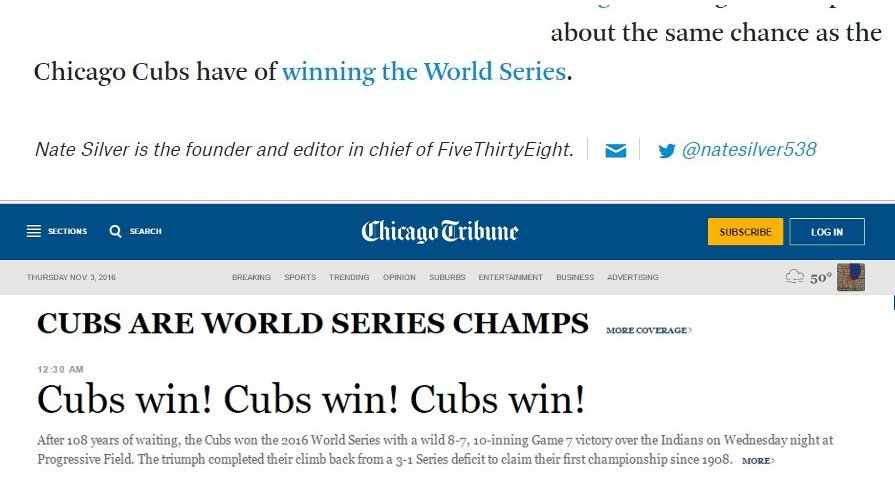Journalists play too great a role in our political dialogue to employ a method of analysis that by definition claims ownership of a higher degree of reliability, when in reality it just offers a new take on the same inherently subjective information politics deals with. Polling itself receives this very same criticism, and deservedly so. We should not magnify this problem by merely repackaging the same desire on the part of some to obfuscate the clear momentum of political movements we do not like and promote the ones we do. |

Stage 1: Free-for-all (other candidates suck up oxygen)
Stage 2: Heightened scrutiny (he can't withstand) |
Politics represents the conversation we have where all civil elements of society come together at a common place, under accepted rules, to arrive at decisions the majority will accept as legitimate. The variables within the sphere of politics number as many as the various forces that influence human values and decision making. All the complexity that our human nature (hopes, fears, emotions) imposes on making collective decisions bares down on this process at many different points and with various degrees of pressure and duration. Forces come out of nowhere that blast this political sphere and change it dramatically in ways that elude prediction.
Data journalists represent a group of people raised on data, fascinated by the allure of all the technology with which we access and analyze it. My instict tells me that too many of them are simply intoxicated by its promise and novelty and miss some very plain realities in analyzing politics. Politics is emphatically a form of art, not a science. |
Stage 3: Iowa and New Hampshire (finishes in middle)
Stage 4: Winnowing (consolidated opposition dwarfs him)
Stage 5: Delegate accumulation (superdelegates say no)
Stage 6: Endgame (GOP establishment crushes him)

|
Sadly, data journalists miss the most basic reality of politics, the art form exists because of the very unpredictable nature of the forces that influence our collective decision-making. Data journalism as it relates to politics embodies a blazing contradiction in the same way the phrase political science does.
Just remember, Nate Silver thought Trump only had a 5% chance of winning the nomination, and Trump won more votes than anyone ever. See below: |
 |
 My Twitter account is just getting started. Follow me here!
My Twitter account is just getting started. Follow me here!


 My Twitter account is just getting started. Follow me here!
My Twitter account is just getting started. Follow me here!

